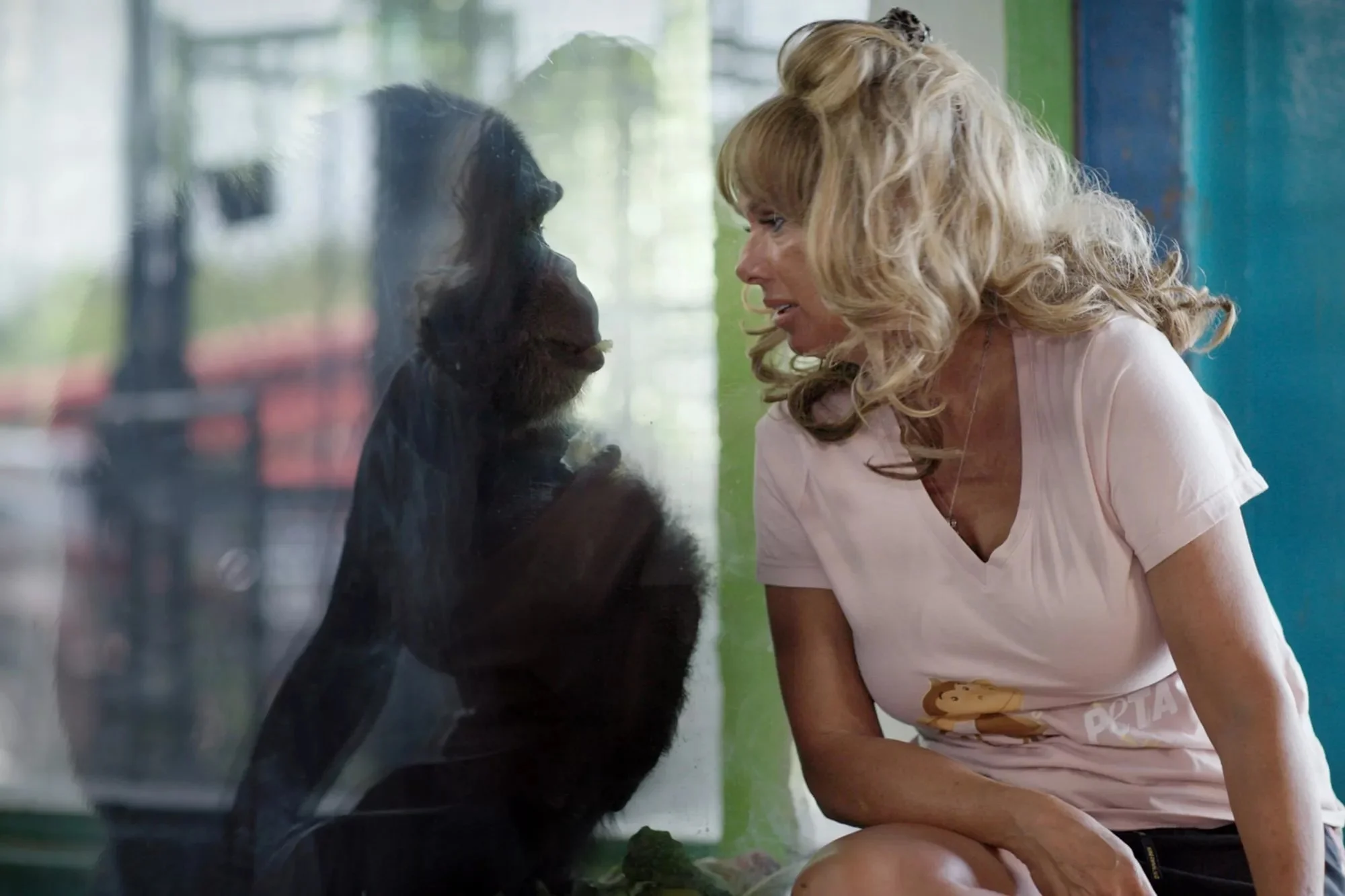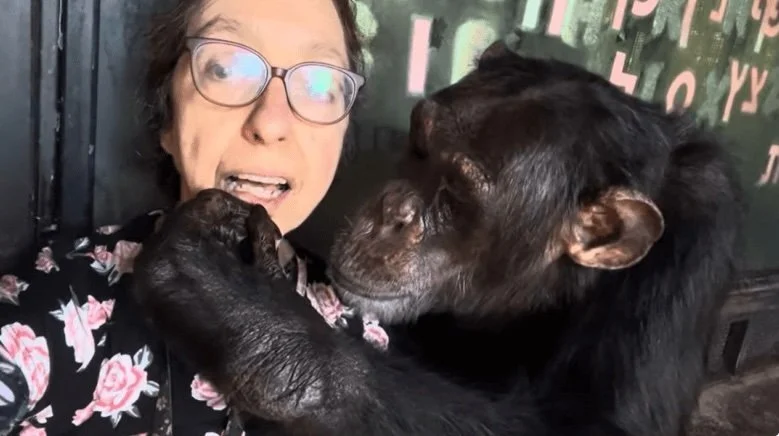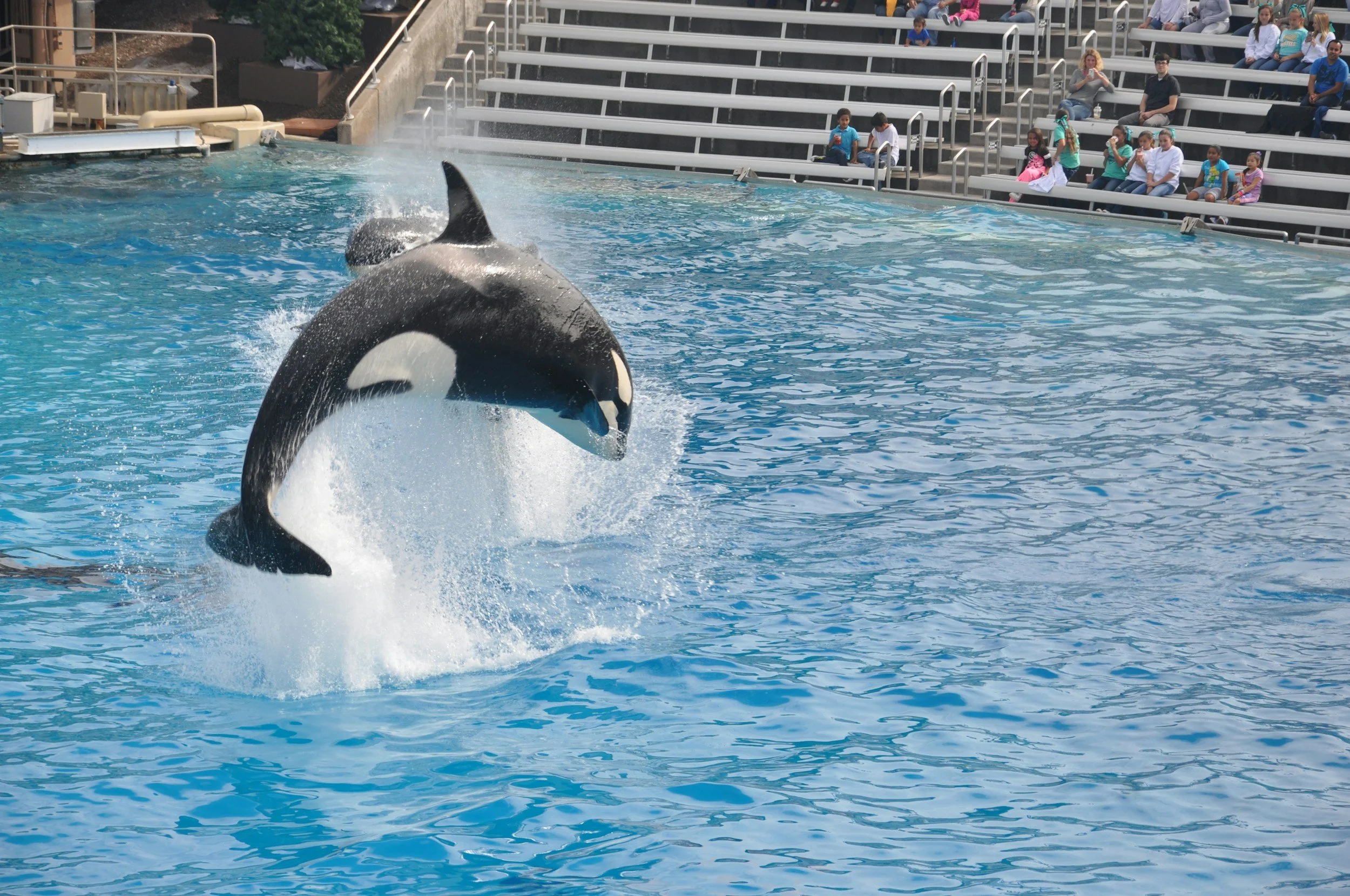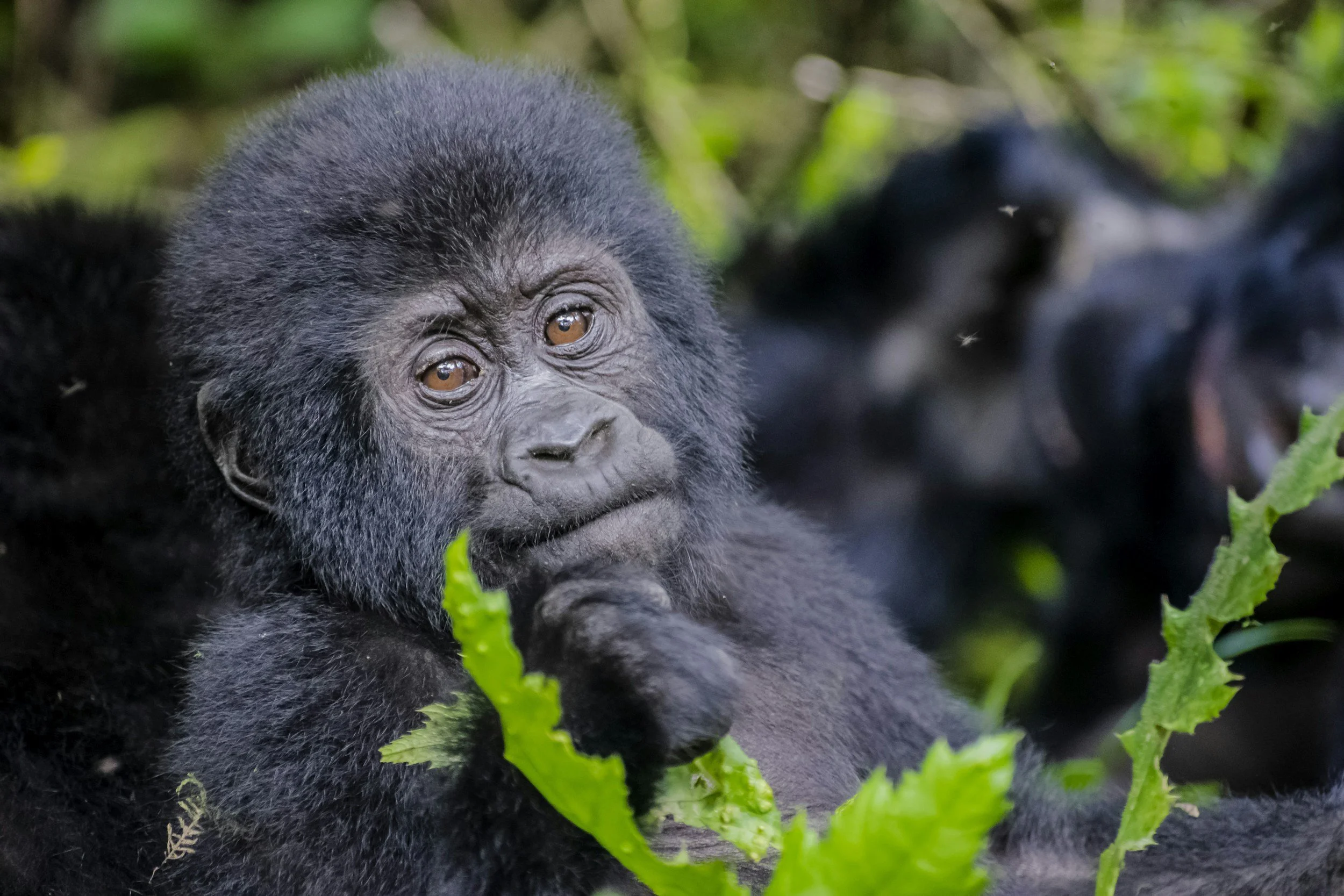‘Chimp Crazy’ figure arrested again, as second ape found in same basement cage
Tonia Haddix was taken into custody after defying court orders once again, as authorities discovered another chimpanzee hidden in the same tiny basement cage where she once kept Tonka.
A chimpanzee has been discovered in the basement of a Missouri home owned by Tonia Haddix, the controversial figure at the center of a years-long legal battle surrounding her exotic animal ownership.
Haddix is also the subject of the 2024 HBO docuseries Chimp Crazy, directed by Tiger King filmmaker Eric Goode. The film explores the world of exotic animal ownership, focusing on so-called “chimp moms” - individuals who raise chimpanzees as pets and often treat them like children - while highlighting the serious dangers private ownership poses to both people and primates.
Over the years, Haddix kept seven captive chimps who were bred to be used in commercials, photo shoots, and movies. These primates were previously kept at the now-shuttered Missouri Primate Foundation until People for the Ethical Treatment for Animals (PETA) sued over the animals’ living conditions.
Among them was Tonka, a 32-year-old retired Hollywood chimpanzee, who Haddix once claimed to love more than her own children. PETA was granted permission to rescue Tonka along with the six others, but when the animal rights organization came to carry out the court’s order, Tonka had disappeared, with Haddix claiming that he had died.
As shown in Chimp Crazy, PETA launched a nationwide search, and nearly a year later, found Tonka hidden in a tiny basement cage at Haddix’s new home, isolated, unable to move freely, denied outdoor access, companionship, and proper veterinary care.
Tonka and Tonya Haddix in 'Chimp Crazy'. Photo: HBO
Tonka was rescued and is now living at the Save the Chimps sanctuary in Fort Pierce, Florida, while the U.S. Department of Agriculture (USDA) terminated Haddix’s federal license, banning her from legally selling primates, and from operating her roadside zoo.
Haddix pleaded guilty to two counts of perjury and one count of obstructing justice for lying to a federal judge about Tonka’s whereabouts and disobeying a court order to surrender him. She was also ordered to pay PETA’s legal fees and costs, which amounted to around $225,000.
The conflict is still ongoing, with Haddix arrested on Saturday 20 July, for allegedly ignoring court orders to show up at court and due to her companies’ failure to turn over financial records to PETA.
“PETA spent hundreds of thousands of dollars to find Tonka, get him out of the cage in Tonia Haddix’s basement, and move him to the spacious sanctuary where he’s now thriving, and Haddix can’t keep dodging the court’s orders to pay back the money she owes,” said PETA Foundation General Counsel Brittany Peet.
Following Haddix’s arrest, authorities announced today that they discovered another chimpanzee confined in the same cramped basement cell where Tonka had previously been held.
Officials confirmed the chimpanzee has since been safely removed.
“Tonia Haddix has again defied court orders and locked a highly social chimpanzee in a tiny basement cage, without the companionship of other chimpanzees, appropriate care, or even the ability to feel sunlight on her skin,” said Peet. “This person clearly won’t stop hurting animals unless and until she’s facing a long stay behind bars herself, and PETA is calling for the court to issue her the harshest possible sentence.”
What can be done to protect chimpanzees in the US?
The Captive Primate Safety Act, introduced by Senator Richard Blumenthal and Representatives Earl Blumenauer and Brian Fitzpatrick, aims to prohibit the private ownership of nonhuman primates.
The Act defines 'prohibited primate species' to include various types of monkeys, apes, and their hybrids. This legislation is focused on banning pet primates while exempting zoos, research facilities, sanctuaries, and universities. Current owners would need to register their animals to ensure awareness among first responders and animal control officers.
Species Unite is among the animal advocates fighting for the passage of the Captive Primate Safety Act. The group's petition, supported by more than 7,000 people, highlights how nearly half of U.S. states allow private ownership of primates as pets, leading to a patchwork of regulations and a lack of federal protection against abuse, as shown in Chimp Crazy.
Primates often suffer severe trauma from early separation, poor diets, and inadequate living conditions, which fail to meet their complex needs, as per the petition. Additionally, large primates kept as pets can be dangerously aggressive, with over 300 injury cases reported in the past 30 years.
A screen capture of Bow from a YouTube video posted by Aya Katz, a Raymondville, Missouri, resident and vlogger. Bow is the last remaining solitary chimpanzee held in a private home in the U.S. Photo: PETA
There are fewer than 100 chimpanzees remaining in roadside zoos and private homes in the U.S., according to PETA. Three of those include: Bow, who is exploited in a private home in Missouri for his “owner” Aya Katz’s YouTube channel; Limbani, who is held at a notorious Miami roadside zoo featured in Tiger King and owned by former drug kingpin and convicted felon Mario Tabraue; and Ricky, who is held captive at Pam Rosaire’s secretive compound in Sarasota, where Chance, another chimpanzee featured in Chimp Crazy died of unknown causes at just 15 years old after appearing in Martin Scorsese’s The Wolf of Wall Street.
Learn more about Chimp Crazy by listening to these podcast episodes: S11. E22: Chimp Crazy: Angela Scott: The Whistleblower and S11. E21: Chimp Crazy: Brittany Peet: The Attorney
Join Species Unite in calling on Congress to pass the Captive Primate Safety Act by signing and sharing this petition.
Whistleblowers with information about captive chimpanzees, including Bow, Limbani, or Ricky, are encouraged to contact PETA here.
Learn more about the sanctuary where Tonka now lives by listening to the podcast episode S1. E7: Dr. Andrew Halloran: Ending The Nightmare For Chimpanzees. Dr. Andrew Halloran is the director of chimpanzee care at Save the Chimps in Fort Pierce, Florida. Andrew has spent the past 20 years working to improve and save the lives of chimpanzees
We Have A Favor To Ask…
Species Unite amplifies well-researched solutions to some of the most abusive animal industries operating today.
At this crucial moment, with worldwide momentum for change building, it’s vital we share these animal-free solutions with the world - and we need your help.
We’re a nonprofit, and so to keep sharing these solutions, we’re relying on you - with your support, we can continue our essential work in growing a powerful community of animal advocates this year.






A judge has issued Pennsylvania’s first habeas corpus order for a nonhuman animal, advancing NhRP’s fight to move five African elephants from the Pittsburgh Zoo to a sanctuary.